By Faith Collier
“Now that summer is here, I need to lose weight and get healthy to get my body swimsuit ready!”
“I am not summer body ready!”
“I need to lose weight for bikini season."
We’ve all heard it - whether it was on social media, or said by a family member, stranger, friend, or even yourself. There is this bizarre misconception that every year, for the summer months, one must change themselves physically by dieting and working out more in order to wear a swimsuit, and this misconception seems to pop up everywhere. Just last week, a close friend joked to me that she has to start a diet soon to get her “summer body” ready. And this morning on Facebook I saw a meme with an adorable baby looking at its tummy with the caption “ When you’re cute, but you’re not summer body ready”.
Year after year, I continue to hear these types of remarks and statements, and typically I just laugh it off or nod uncomfortably. Logically, I know that the idea that losing weight because of seasonal expectations is silly, but a small part of me always feels the need to conform to these expectations. But this year, I would like to actually take this comment seriously, and look at the negative mentality it creates towards body image and body positivity.
Firstly, losing weight and being thin doesn’t necessarily mean someone is healthy.
Ever since I was a little girl, I was always taught that if you were thin, you were healthy. And if you were bigger, then you weren’t. It was as simple as that. However, I have come to learn that this is most certainly NOT true. You can be any shape or size and still be healthy and active. Your weight does not define who you are, nor does it define your “healthy-ness”. As an example, look at all different types of athletes - sprinters, basketball players, gymnasts, swimmers, even sumo wrestlers! They all have different body types, yet are all extremely active and passionate about their individual sport. If you really want to be healthier, take time to do things you love, and most importantly, aim for balance. You can enjoy both cake and vegetables, and everything in between. You can be active and you can relax and rest! Giving yourself permission to slow down can be incredibly therapeutic and calming in itself.
Secondly, ALL bodies are swimsuit bodies! Say it with me: “All bodies are swimsuit bodies!”. You don’t have to change yourself in order to wear a swimsuit and enjoy the sunshine. Swimsuits are meant to be worn and enjoyed. So, strut your stuff my friend, and own your body, because it is you and you are fabulous in every shape and form. Just make sure to stay hydrated, wear sunscreen, and have some fun!
And lastly, just because it is summer, doesn’t mean you need to change. Summer is just another season of the year, it is no different than Fall, Spring or Winter. Just slightly warmer temperature-wise. You can be healthy and happy with yourself and your body all year round no matter what the weather or what you choose to wear! If you are holding back from having fun in the summer for whatever reason, make a list of one thing you will do a day or every few days that is fun and enjoyable for you and do your best to follow through. By allowing yourself to have fun and engage in an activity that brings you joy, you can take your mind off your body and societal expectations and instead move into the present moment - a useful practice for any time of year!
Ultimately, your weight or how you look does not define who you are. Nor should it invalidate your existence. You are a beautiful person, both inside and out. There are so many reasons why the concept of having to lose weight for summer in order to wear a swimsuit is ridiculous and flawed. So this year, fight the idea that you have to look or be a certain way to wear a swimsuit, and instead go out there and enjoy the sunshine (but don’t forget to put on sunscreen!).
 My name is Faith and I am currently a nursing student at the University of the Fraser Valley. Ever since recovering from my own eating disorder, I have been passionate about helping others and recently began volunteering with the Looking Glass Foundation after going to their summer camp as a teenager. Some stuff to know about me is that I love learning and trying new things. When I am not at school or studying, you can find me reading, playing with my dog or doing some sort of outdoor activity!
My name is Faith and I am currently a nursing student at the University of the Fraser Valley. Ever since recovering from my own eating disorder, I have been passionate about helping others and recently began volunteering with the Looking Glass Foundation after going to their summer camp as a teenager. Some stuff to know about me is that I love learning and trying new things. When I am not at school or studying, you can find me reading, playing with my dog or doing some sort of outdoor activity!
[vc_row][vc_column][vc_column_text][printfriendly]
In this Advice by Kaela vlog, Kaela answers questions submitted from our community about the importance of self-compassion and forgiveness on the road to eating disorder recovery. Check out our handy question guide below. For more self-compassion resources, please visit here.[/vc_column_text][/vc_column][/vc_row][vc_row][vc_column][vc_video link="https://vimeo.com/443485934"][vc_column_text]00:30 How do I forgive myself when I’ve missed out on so many potential good memories and experiences due to being wrapped up in my eating disorder for so many years?
4:15 What are some ways to practice self-compassion during the really difficult days?
8:50 My friend is going through an eating disorder right now. Everytime I encourage him to be kind to himself, he gets frustrated and tells me “its not so simple.” How can I encourage self-compassion with perhaps more tangible advice?
11:45 I often experience intense feelings of guilt and shame after a binge session. I find this often drives my emotions and perpetuates another binge. How can I practice kindness and forgiveness after I binge?
16:05 Do you have any self-compassion tips for dealing with weight gain during recovery?
Did you like the vlog? Have any questions you'd like Kaela to answer in our next video? We would love to hear from you![/vc_column_text][/vc_column][/vc_row][vc_row][vc_column][vc_column_text]
[dt_divider style="thin" /]
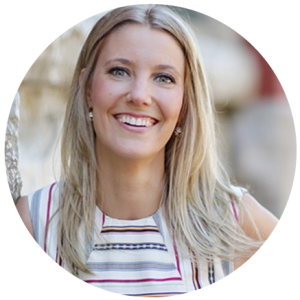 Kaela Scott is a Registered Clinical Counsellor who specializes in Eating Disorders. She runs her own private practice and works with the Looking Glass Foundation in both their summer camp and their Hand In Hand Program. She has been passionate about working with eating disorders since freeing herself from her own struggle and realizing what it is like to be happy and well. When she isn’t working, you can find Kaela either cozying up with a cup of tea and her friends or up in the mountains going for a hike.
Kaela Scott is a Registered Clinical Counsellor who specializes in Eating Disorders. She runs her own private practice and works with the Looking Glass Foundation in both their summer camp and their Hand In Hand Program. She has been passionate about working with eating disorders since freeing herself from her own struggle and realizing what it is like to be happy and well. When she isn’t working, you can find Kaela either cozying up with a cup of tea and her friends or up in the mountains going for a hike.
[/vc_column_text][/vc_column][/vc_row]
[vc_row][vc_column][vc_column_text][printfriendly]
By Alex Charleton
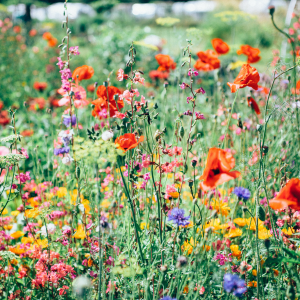
I get you.
I get you when you feel like the day will never turn around,
When you feel like you’ve lost love for yourself and it can’t be found.
I know the pain of feeling like a stranger in your own body,
and the search for anything to fill that yearning to be some body.
I get you
I get the thoughts you have about believing you are unworthy
The unsafeness, the unsettledness, and un-sureness; all of it unnerving.
I relate to the feeling of being trapped, with no energy to fight
I know the dis-ease when the skin feels too tight.
The distance from your power and strength, I know all too well.
More than you know, I get you.
Close your eyes and hear my words, as I connect to your shadows.
You are not broken; the waters will soon change shallow.
Your doubt is an opening for the person you are becoming.
But the truth is, you are perfect already, making no space for numbing
Your hurt holds the tension where your power and strength can thrive
Your essence is strong and alive
You are held in the gentle hands of the universe
It is okay if some days feel so unbearable, go ahead and curse.
Know that I get you
You will still be loved; there is no doubt.
May you move through your hurt and look to your body
As a source of wisdom and an entity to befriend along the journey
Because dear one, I get you.
Though your body may seem like the culprit of your pain,
The suffering is wrapped up in your attempts for it to be tamed
The truth is, this custom vessel you live in
Is the source of freedom, desperately wanting you to be a-kin.
Along your journey, you will re-discover
That you are capable of self-love; more than any prospective lover.
I get you.
Love, an ED therapist.[/vc_column_text][vc_empty_space][vc_separator][/vc_column][/vc_row][vc_row][vc_column][vc_empty_space][vc_column_text]
 Born and Raised on the West coast, I love living among the trees and alongside the ocean. I thrive off of connection. I am a curious creature who loves learning about people and seeing them for who they truly are. I have a big heart, and give all my support to the special people in my life. My core values are integrity, empathy, open-mindedness, and family. If I am not elbow deep in school work, you can find me free styling with recipes in the kitchen, or meditating near the water.
Born and Raised on the West coast, I love living among the trees and alongside the ocean. I thrive off of connection. I am a curious creature who loves learning about people and seeing them for who they truly are. I have a big heart, and give all my support to the special people in my life. My core values are integrity, empathy, open-mindedness, and family. If I am not elbow deep in school work, you can find me free styling with recipes in the kitchen, or meditating near the water.
[/vc_column_text][/vc_column][/vc_row]
[vc_row][vc_column][vc_column_text][printfriendly]
By Sarah Boyle, MC, RCC | From Parallel Wellness
I believe the goal of mentally and physically decompressing is finding a method that works for you feel more “ease/peace.” For some of us, we may have ongoing concerns that we don’t feel we can make peace with. We may be grieving a loss, awaiting an admission to a workplace, or school program, in the midst of an unresolved conflict that has required space, etc. And accepting this is an important piece to ending the temporary struggle.
In situations like these it isn’t natural for us to feel completely peaceful. But by mindfully acknowledging what it is that we are feeling unsettled about, we can then do our best to support the associated discomfort. I list some techniques in “physical ways to decompress” however other emotional supports may be necessary depending on what you acknowledge you need. Naming the discomfort and knowing it is something you can speak to a counselor with in the near future, phone a friend or family member about, maybe not resolve right now, but resolve tomorrow or the next day, using distraction techniques, – or maybe just accepting you’re not going to feel optimal for a little while – can still turn off our nervous system and assist us to feel as relaxed as possible, given the circumstances. In my personal experience, just vocally saying out loud “UGHH this blows!” in a time of discomfort – has allowed me to decompress a bit and sit back a little more.
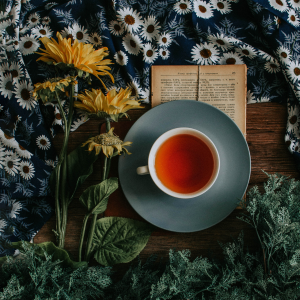 Physical Practices:
Physical Practices:
The art to working with our nervous system is finding ways that we can turn on our parasympathetic nervous system, the one we experience in a restful state. Engaging our senses (site, smell, hearing, touch, taste) has always been an affective way to bring our focus into the present moment and kick on the parasympathetic nervous system.
I invite you to try some of these techniques, or to revisit ones you already commonly do with the intention of winding down. Again, decompressing is a mind and body interplay! Combining a few of these techniques may allow them to be all the more effective for you![/vc_column_text][vc_empty_space][vc_separator][/vc_column][/vc_row][vc_row][vc_column][vc_empty_space][vc_column_text]

Sarah Boyle is a Registered Clinical Counsellor with the BC Association of Clinical Counsellors (#14285). She has a Masters degree in Psychological Counselling from City University of Seattle with further training in Eating Disorders. She is currently a doctoral student in Clinical Psychology at Adler University and works privately as an RCC at Parallel Wellness.
Sarah has extensive training and knowledge in emotional, relational and physical health. She sees these as fundamental to one’s wellbeing and security, and often the catalyst for many to thrive. Sarah greatly values collaborating with her clients, empowering them to discover and develop their own awareness, goals, solutions, balance, knowledge, liberation and peace.
[/vc_column_text][/vc_column][/vc_row]
[vc_row][vc_column][vc_column_text][printfriendly]
By Sarah Boyle, MC, RCC | From Parallel Wellness
I aspire to meet the person, especially living in Vancouver or the lower mainland, that get’s home at the end of the day, every day, feeling completely relaxed and restful. A good song playing in the car, or in your headphones on the commute home, a calm walk home, a yoga class or gym session after work, or even meeting with friends for a tea or another indulgence, all have their natural ways of helping us to feel more centered and relaxed at the end of the day. But often times we don’t have an opportunity to do these things, and we come home still revved up from what the day has thrown our way. We struggle to wind down and feel relaxed. We also may have children which rev us up all the more when we get home, and leave us feeling extremely wired after we’ve finally put them down, now having to decompress from a very full day!
We know well now that our nervous system - the system that pumps adrenaline to wind us up when we need to get going or keeps us feeling alert in a situation that could be perceived as threatening – involves an interplay of both our mind and physical bodies. When put into context, this suggests that in most cases when we come home at the end of a high paced day, or try to ground and relax after a period of being highly aroused, it is most effective to use both mindful techniques and physical practices to support both to “wind down.”
I challenge you to try to practice some of these techniques, if you haven’t already, and be aware of the effects it has on your nervous system and ability to feel soothed, rested or and more relaxed.
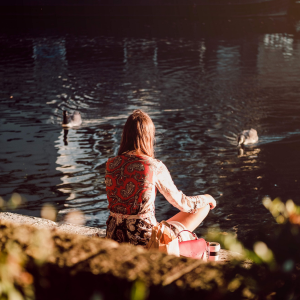 Mindful techniques:
Mindful techniques:
In my experience it is SUCH a strength and resilience factor to become aware of ways that we can effectively regulate and sooth our minds and bodies. One thing that is for sure, life is unpredictable. By building an inventory of skills and supports that help keep us balanced and wind down at the end of the day will support us to better manage stress and stay strong day to day![/vc_column_text][vc_empty_space][vc_separator][/vc_column][/vc_row][vc_row][vc_column][vc_empty_space][vc_column_text]

Sarah Boyle is a Registered Clinical Counsellor with the BC Association of Clinical Counsellors (#14285). She has a Masters degree in Psychological Counselling from City University of Seattle with further training in Eating Disorders. She is currently a doctoral student in Clinical Psychology at Adler University and works privately as an RCC at Parallel Wellness.
Sarah has extensive training and knowledge in emotional, relational and physical health. She sees these as fundamental to one’s wellbeing and security, and often the catalyst for many to thrive. Sarah greatly values collaborating with her clients, empowering them to discover and develop their own awareness, goals, solutions, balance, knowledge, liberation and peace.
[/vc_column_text][/vc_column][/vc_row]
[vc_row][vc_column][vc_column_text][printfriendly]
In this Advice by Kaela vlog, Kaela answers questions submitted from our community about navigating the COVID-19 transition period as restrictions are lifted as well as general eating disorder recovery questions. Check out our handy question guide below.[/vc_column_text][/vc_column][/vc_row][vc_row][vc_column][vc_video link="https://vimeo.com/427947008"][vc_column_text]00:13 Even though COVID-19 restrictions are easing up, my anxiety is still high. How can I manage my anxiety during this transition time?
02:55: As someone who struggles with binge-eating, I gained weight during the quarantine/self-isolation period during these last few months. Now that summer is close, I feel immense pressure to lose weight. I’d like to get back to a healthy weight without slipping into my ED behaviours. Please advise!
6:30 My sleep schedule is all messed up after the self-isolation COVID-19 period. Now that I am returning back to work, how can I get back to a regular sleep schedule?
09:25 How can I help a friend who is struggling with an eating disorder without coming off as insensitive?
10:55 My friend is pushing a vegan diet agenda and it is triggering my ED thoughts. How to I broach this topic with her in a kind way while also setting my own boundaries?
13:40 What are some tricks to help regain recovery motivation when you feel it slipping away?
Did you like the vlog? Have any questions you'd like Kaela to answer in our next video? We would love to hear from you![/vc_column_text][/vc_column][/vc_row][vc_row][vc_column][vc_column_text]
[dt_divider style="thin" /]
 Kaela Scott is a Registered Clinical Counsellor who specializes in Eating Disorders. She runs her own private practice and works with the Looking Glass Foundation in both their summer camp and their Hand In Hand Program. She has been passionate about working with eating disorders since freeing herself from her own struggle and realizing what it is like to be happy and well. When she isn’t working, you can find Kaela either cozying up with a cup of tea and her friends or up in the mountains going for a hike.
Kaela Scott is a Registered Clinical Counsellor who specializes in Eating Disorders. She runs her own private practice and works with the Looking Glass Foundation in both their summer camp and their Hand In Hand Program. She has been passionate about working with eating disorders since freeing herself from her own struggle and realizing what it is like to be happy and well. When she isn’t working, you can find Kaela either cozying up with a cup of tea and her friends or up in the mountains going for a hike.
[/vc_column_text][/vc_column][/vc_row]
[vc_row][vc_column][vc_column_text][printfriendly]

This past week, the BC government revealed the very first stages of lifting the restrictions that have been in place for the past 2 months. Soon, it appears, people will be able to start seeing a few more people and reconnecting with their loved ones and some may be able to return to work. I know for myself it has brought up a lot of conflicting feelings. It is funny how for the past two months we have all been desperate to have life feel normal again and then at the first mention of it many people are feeling like all they want to do is retreat into the familiar experience of isolation. It is like we want connection desperately and yet this new world we are going to enter into feels really unpredictable and scary. There are a few things that have been coming up a lot with my clients lately and I thought it important to address them here.
Listen To What Feels Right: Just because some restrictions are lifting doesn’t mean you have to do anything differently in your life right now. You get to decide what feels right and safe for you. Maybe that is including more people in your life and maybe it’s not. Maybe it is choosing to work out of the office, or maybe it’s asking to keep working from home (assuming that’s an option). You need to listen to what feels right for you and honor it. If you don’t, your anxiety will skyrocket and you will be more likely to engage in disordered behaviors as a way to cope.
Drop The Weight Conversation: There is far too much talk right now going around about weight gain during quarantine. I am going to stress the importance of setting a boundary right now most importantly with yourself and also with others. Whether you did or did not gain weight during isolation is irrelevant. You were in a situation that was entirely unpredictable, really scary, and completely foreign. The goal was to get through it without getting Covid and to keep yourself and others safe. As the world slowly opens back up, focus on just how great it feels to give a loved one an in-person hug. Honor that a lot more important things happened during your time in isolation, including having to be your main support system and changing every single thing about how your life once looked. If you chalk up this whole experience to weight (gained or lost) you will lose the important lessons you learnt and neglect the fact that you emotionally made it through an exceptionally challenging experience.
Make Space To Heal: going through this experience has had an effect on everyone. I truly don’t believe anybody is coming out of this the same as they were before. It has been hard having to adjust to what life looks like when living through a global pandemic and you have been challenged in ways you never could have expected. So on top of focusing on recovering from your eating disorder, give yourself time to focus on recovering from this experience. Try to recognize the ways you are different and do so without judgment. Your job was to survive and you did. Now is the time to heal so that you can once again focus on thriving.
The world is likely to look and feel different as we enter back into it after being in isolation. Be good to yourself and make sure you prioritize listening to yourself and your needs above anything else. If you want some support, reach out, we are always happy to help!
[/vc_column_text][/vc_column][/vc_row][vc_row][vc_column][vc_column_text]
[/vc_column_text][/vc_column][/vc_row][vc_row][vc_column][vc_column_text]
[dt_divider style="thin" /]
 Kaela Scott is a Registered Clinical Counsellor who specializes in Eating Disorders. She runs her own private practice and works with the Looking Glass Foundation in both their summer camp and their Hand In Hand Program. She has been passionate about working with eating disorders since freeing herself from her own struggle and realizing what it is like to be happy and well. When she isn’t working, you can find Kaela either cozying up with a cup of tea and her friends or up in the mountains going for a hike.
Kaela Scott is a Registered Clinical Counsellor who specializes in Eating Disorders. She runs her own private practice and works with the Looking Glass Foundation in both their summer camp and their Hand In Hand Program. She has been passionate about working with eating disorders since freeing herself from her own struggle and realizing what it is like to be happy and well. When she isn’t working, you can find Kaela either cozying up with a cup of tea and her friends or up in the mountains going for a hike.
[/vc_column_text][/vc_column][/vc_row]
[vc_row][vc_column][vc_column_text][printfriendly]
When we take time to look at the people in our lives that we look up to because they are healthy and well, often one of the most fundamental things they have in place are strong boundaries. Boundaries are one of the most important pieces in eating disorder recovery not only because they teach others how we want to be treated but also because they teach us how we want to treat ourselves. In the past I wrote a blog about how you can set boundaries with other people. For the purpose of this blog, I am going to focus on the importance of setting boundaries with yourself.
Many people don’t realize that when you struggle with an eating disorder you are essentially in a relationship with a horrifically abusive being that lives inside your head. It emotionally torments you all hours of the day and dictates what you are or are not allowed to do, think, feel etc. It is for this reason that one of the most important steps in recovery is boundary setting. We have to learn to separate out our healthy selves from our eating disorder selves and start prioritizing the hopes, wants, dreams and longings of what we really for ourselves.
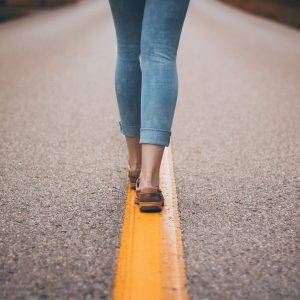 To set boundaries with yourself requires you to first do some exploring within so you can understand not just your ideal life but the genuine ways you feel your disorder gets in the way of the everyday life you want to live. In what ways do you find your eating disorder takes away joy? What are the things you most miss from your life before your eating disorder? What freedoms do you see others easily enjoying that you too want to be able to do? Getting clear on how your eating disorder hurts you is important because it highlights the places you want to change. Each person’s experience is going to be completely unique and so it is important you spend time dialing into your wants for yourself, not the wants others may have for you or themselves.
To set boundaries with yourself requires you to first do some exploring within so you can understand not just your ideal life but the genuine ways you feel your disorder gets in the way of the everyday life you want to live. In what ways do you find your eating disorder takes away joy? What are the things you most miss from your life before your eating disorder? What freedoms do you see others easily enjoying that you too want to be able to do? Getting clear on how your eating disorder hurts you is important because it highlights the places you want to change. Each person’s experience is going to be completely unique and so it is important you spend time dialing into your wants for yourself, not the wants others may have for you or themselves.
Next it is important to know your limits. We all want to race to the finish line in recovery and start doing all the things all at once but we know that this approach usually only sets us back and prevents us from trusting in our abilities to achieve our goals. You need to know what steps feel manageable and which steps feel impossible. For some, the next step might be incorporating a particular food into their daily diet, while for others it might be waking up and setting a mantra that recovery is possible. Everybody will have different first steps. Get clear on yours and make sure it is something you know you can achieve 80% of the time. The key hear is to not expect perfection. If you go in expecting to go through recovery perfectly you will feel like you have failed every time you are challenged. Instead, aim to be successful the strong majority of the time and then be extra compassionate when you have an off day. I would encourage you to write your first step out and put it somewhere you can see. Research shows writing things down makes the goal become a priority and less likely to be forgotten.
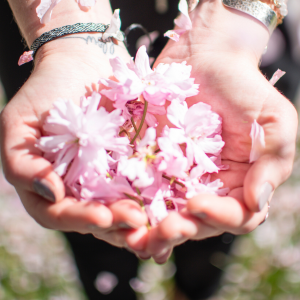 Finally, give your healthy self permission to be assertive and to matter. Eating disorders love to tell a person how all of their attempts to be well and good to themselves are futile, silly or not worth it. You have a right to recover and recovery is something that you are just as deserving of as anyone else. Setting a goal and taking a step, regardless of how small, is still significant and will make a difference in the long run. Remember that nobody recovers overnight and that often this journey is about taking a million little steps that add up to living a recovered life. Be assertive with your eating disorder and don’t ever hesitate to tell it off. Your job here isn’t to be kind and nice to something that is sucking you of life, joy and connection. Your job is to give your hopes a chance to become a reality by prioritizing one healthy thing at a time.
Finally, give your healthy self permission to be assertive and to matter. Eating disorders love to tell a person how all of their attempts to be well and good to themselves are futile, silly or not worth it. You have a right to recover and recovery is something that you are just as deserving of as anyone else. Setting a goal and taking a step, regardless of how small, is still significant and will make a difference in the long run. Remember that nobody recovers overnight and that often this journey is about taking a million little steps that add up to living a recovered life. Be assertive with your eating disorder and don’t ever hesitate to tell it off. Your job here isn’t to be kind and nice to something that is sucking you of life, joy and connection. Your job is to give your hopes a chance to become a reality by prioritizing one healthy thing at a time.
I hope you spend some time reflecting on how strong you are to realize what does and doesn’t work for you and which boundaries you need or want to set with your eating disorder. It takes a lot of courage to explore what helps you in recovery and what impedes your progress. If there is anything we can do to provide support for you along your journey, please reach out. We are always here to help!
[/vc_column_text][/vc_column][/vc_row][vc_row][vc_column][vc_column_text]
[/vc_column_text][/vc_column][/vc_row][vc_row][vc_column][vc_column_text]
[dt_divider style="thin" /]
 Kaela Scott is a Registered Clinical Counsellor who specializes in Eating Disorders. She runs her own private practice and works with the Looking Glass Foundation in both their summer camp and their Hand In Hand Program. She has been passionate about working with eating disorders since freeing herself from her own struggle and realizing what it is like to be happy and well. When she isn’t working, you can find Kaela either cozying up with a cup of tea and her friends or up in the mountains going for a hike.
Kaela Scott is a Registered Clinical Counsellor who specializes in Eating Disorders. She runs her own private practice and works with the Looking Glass Foundation in both their summer camp and their Hand In Hand Program. She has been passionate about working with eating disorders since freeing herself from her own struggle and realizing what it is like to be happy and well. When she isn’t working, you can find Kaela either cozying up with a cup of tea and her friends or up in the mountains going for a hike.
[/vc_column_text][/vc_column][/vc_row]
[vc_row][vc_column][vc_column_text][printfriendly]
For many years, our ED therapist, Kaela Scott, has been answering questions from our community in our monthly 'Advice by Kaela' blogs. We decided to take this one step further and create a vlog! In our first ever vlog, Kaela answers questions submitted from our community about navigating eating disorders while simultaneously navigating the uncertain times we are living in due to COVID-19. Check out the full vlog and our handy question guide below.[/vc_column_text][/vc_column][/vc_row][vc_row][vc_column][vc_video link="https://vimeo.com/lookingglassfoundation/covid19vlog"][vc_column_text]00:40 As someone who is in ED recovery, how can I navigate grocery shopping right now, when old habits are emerging due to increased anxiety?
04:03 I find myself binge eating more due to the bulk shopping I have been doing so that I don’t go to the grocery store as often. How can I manage this when there is so much food in the house?
08:35 Is eating while watching tv or listening to podcasts/music/audiobooks unhealthy?
09:35 What are ways to create structure right now when battling an eating disorder with limited accountability or support?
14:05 Do you have any advice on feeling more comfortable with virtual counselling?
16:37 Where can I find online meal support right now?
18:34 What are some strategies to eat regularly and mute ED thoughts?
22:24 Could you share ideas for self-care, hobbies or journalling prompts during this time of necessary social distancing?
Did you like the vlog? Have any questions you'd like Kaela to answer in our next video? We would love to hear from you![/vc_column_text][/vc_column][/vc_row][vc_row][vc_column][vc_column_text]
[dt_divider style="thin" /]
 Kaela Scott is a Registered Clinical Counsellor who specializes in Eating Disorders. She runs her own private practice and works with the Looking Glass Foundation in both their summer camp and their Hand In Hand Program. She has been passionate about working with eating disorders since freeing herself from her own struggle and realizing what it is like to be happy and well. When she isn’t working, you can find Kaela either cozying up with a cup of tea and her friends or up in the mountains going for a hike.
Kaela Scott is a Registered Clinical Counsellor who specializes in Eating Disorders. She runs her own private practice and works with the Looking Glass Foundation in both their summer camp and their Hand In Hand Program. She has been passionate about working with eating disorders since freeing herself from her own struggle and realizing what it is like to be happy and well. When she isn’t working, you can find Kaela either cozying up with a cup of tea and her friends or up in the mountains going for a hike.
[/vc_column_text][/vc_column][/vc_row]
[vc_row][vc_column][vc_column_text][printfriendly]
By Shaely Ritchey
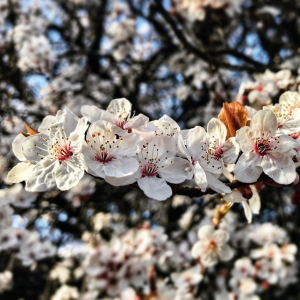 LOVE IN THE TIME OF COVID-19
LOVE IN THE TIME OF COVID-19
(Nathan L.)
“If I think about the word ‘pandemic’ too much
I know I won’t make it out of this.
So instead I’m listening
to the rain pound on the roof.
Later, when the sun comes out,
the wooden shingles will be alive with moss.
How wonderful is that?
Yesterday I saw a video of an old Italian man
playing the saxophone on his balcony
as the whole street stopped and listened
and took out their instruments and played along.
Yes, we spend our whole lives being afraid.
And what comes next?
The flowers from my neighbor’s plum tree
have burst into bloom. I think
how strange and beautiful it is
to look outside the window
and hear the birds
still singing.”
*****
First, be gentle with yourself.
In this time of uncertainty and change there is a great deal that is beyond our control. This can be quite distressing for those of us whose mental well-being depends on routine, access to regular support, and the ability to connect with others or nature around us.
For many of us with mental health struggles, we often feel guilty for struggling when there are bigger issues in the world. While COVID-19 is a large-scale trauma that is having a global impact, it does affect each of us and layer challenge on top of challenge for us as individuals. How it impacts us as individuals looks different for each person. What is important to remember is that your experience of hardship is valid even if there are “larger problems in the world.”
Our lives at the moment have become restricted in almost every way, and for good reason as we collectively focus on a common goal - to flatten the curve and protect our most vulnerable. Still, a lot has changed in a short amount of time, so much so that a week ago almost looks like a different world with each new week that passes. This is challenging, and it is okay to grieve for what you have lost (whether that is freedom of movement, connection to others, regular supports, a sense of purpose, access to treatment, or important events in your life, etc.) It is okay to be angry. It is okay to cry. It is okay to take it moment by moment and get through this time however you can.
It may also be a time that old patterns re-emerge and coping mechanisms we are striving to work through may be something we turn to again in this time of stress. This is normal in a trying time even if it is something we must be cautious about. The remedy is not to beat yourself up when you lapse into old patterns, but rather to recognize the purpose they have served in the past, what they are telling you about your needs right now, to reach for self-compassion, and to seek out support where you can (there are lots of online resource available through Looking Glass and other organizations).
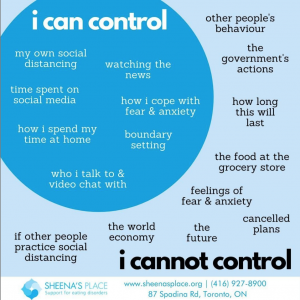 While challenging to try and let go of the things we cannot control and turn our attention to the things we can, it is an important practice to take on in the coming weeks. Like any skill, shifting our focus to what we can control, is something that becomes easier with practice and patience.
While challenging to try and let go of the things we cannot control and turn our attention to the things we can, it is an important practice to take on in the coming weeks. Like any skill, shifting our focus to what we can control, is something that becomes easier with practice and patience.
One way to shift our attention to what is within the realm of our control is to maintain a gratitude practice. Whether daily, weekly, or with whatever regularity supports your well-being, practicing gratitude has been shown to be a powerful skill with many positive mental health benefits.
Practicing gratitude will look different for each of us as we all find what fits our individual needs. For me, practicing gratitude has often taken shape through visual means – I take photos, often of nature. Doing so encourages me to pause, appreciate, and reflect on the beauty in the details around me. It keeps me grounded in the experiences I can take in through my senses and in that way, it serves as a mindfulness practice as well. I keep a gratitude journal in the form of a visual account full of photos and thoughts, but others might find a diary with a few lines of writing more helpful, or just a moment of pause each night before you go to sleep. There is no wrong way to practice gratitude, it is just about finding what is helpful and realistic for you in your life.
Some days it is going to be easier to practice gratitude than others. Some days the idea of gratitude may be frustrating and in those moments, it is okay to just be angry or sad or whatever you need to be. We never owe anyone a positive attitude or a brave face in trying times. It is okay to be with our emotions as they come up through this challenging collective experience. Then there may be other moments where practicing gratitude helps you to stay afloat and the practice itself becomes something you find yourself grateful for.
*****
All that we are facing is difficult, there is no doubt about that. But it is also true that whatever else is going on in the world, there is also the most beautiful kindness and a sense of collective camaraderie. We’re one tribe once more. One heart. One team brought together to support one another through this process. Our collective efforts making a difference towards one common goal. There is something quite beautiful about that and I hope we remember the feeling when this has all passed.
In the meantime, please take care. Seek out joy where you can, stay connected to what nourishes you, and reach out where you need to.
With love,
Shaely[/vc_column_text][vc_empty_space][vc_separator][/vc_column][/vc_row][vc_row][vc_column][vc_empty_space][vc_column_text]

Shaely is a registered nurse with interest in further education in nursing or medicine. She is also a passionate mental health advocate in her community. In her spare time she loves taking photographs, getting outdoors, and petting as many dogs as she can.
[/vc_column_text][/vc_column][/vc_row]